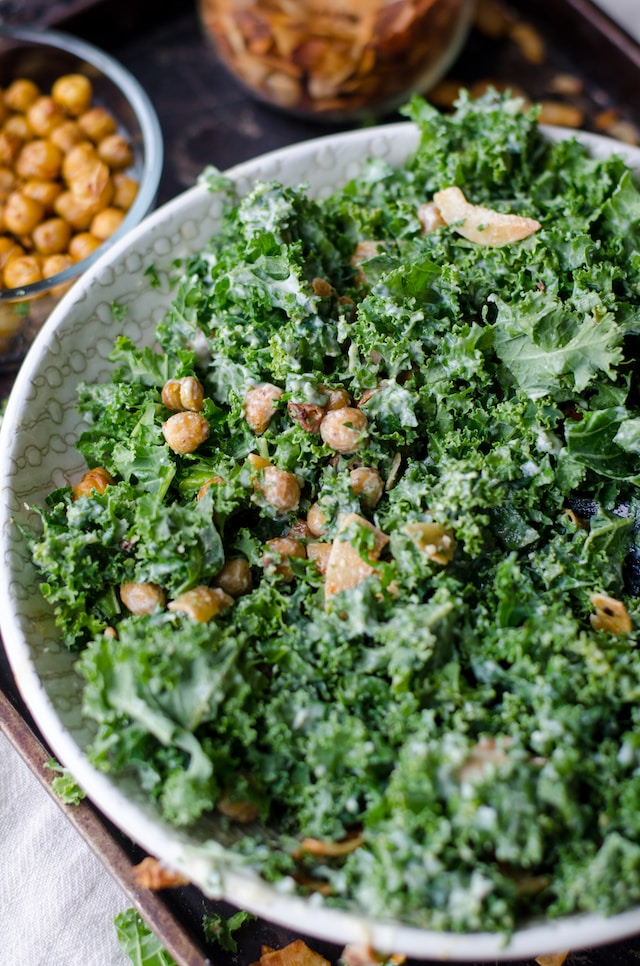When it comes to maintaining good mental health, the old saying “you are what you eat” holds true. While we often associate a healthy diet with physical benefits, emerging research highlights the profound impact of nutrition on mental wellness. Specifically, incorporating greens into our daily meals has been found to have a positive influence on our mental health. In this article, we delve into the fascinating link between greens and mental wellness, exploring the reasons why a salad a day may indeed keep the therapist away.
The Nutritional Powerhouse : Green leafy vegetables are nutritional powerhouses, packed with an array of vitamins, minerals, and antioxidants that are essential for brain health. They are particularly rich in folate, a B-vitamin that plays a crucial role in the production of neurotransmitters like serotonin, dopamine, and norepinephrine. These neurotransmitters are vital for regulating mood, emotions, and overall mental well-being. By incorporating greens like spinach, kale, and Swiss chard into our diets, we provide our bodies with the necessary nutrients to support optimal brain function and mental health.
Balancing Neurotransmitters : Imbalances in neurotransmitters have been linked to mental health disorders such as depression and anxiety. Greens contain nutrients that aid in balancing these neurotransmitters. For example, spinach is rich in magnesium, which has been associated with improved mood and reduced anxiety. Kale is a great source of vitamin C, which plays a role in the production of neurotransmitters and helps protect against oxidative stress. By consuming a salad with a variety of greens, we can help support the delicate balance of neurotransmitters in our brains, promoting greater mental wellness.
Enhancing Gut Health : The gut-brain connection is a bidirectional communication system between our gut and brain. Research has shown that a healthy gut microbiome is crucial for mental well-being. Green vegetables, particularly those high in fiber, act as prebiotics, nourishing the beneficial bacteria in our gut. These bacteria produce compounds, such as short-chain fatty acids, that have been linked to improved mood and reduced anxiety. By incorporating greens into our diet, we promote a diverse and healthy gut microbiome, which in turn positively influences our mental health.
Reducing Inflammation and Oxidative Stress : Chronic inflammation and oxidative stress are underlying factors in many mental health conditions. Green vegetables are rich in antioxidants, which help combat inflammation and oxidative stress by neutralizing harmful free radicals. The phytochemicals found in greens, such as lutein and zeaxanthin, have potent antioxidant properties. Consuming a daily salad packed with a variety of greens provides an excellent source of these protective compounds. By reducing inflammation and oxidative stress in our bodies, we create an environment that supports optimal brain function and mental well-being.
Boosting Overall Well-Being : A salad a day not only contributes to mental wellness but also encourages a holistic approach to health. By choosing a salad as a meal or incorporating greens into our dishes, we make a conscious decision to prioritize our well-being. Salads are typically composed of fresh, whole ingredients, providing a range of nutrients and promoting a balanced diet. This focus on nourishing our bodies with wholesome foods can have a positive psychological impact, boosting self-esteem and fostering a sense of accomplishment in taking care of our overall health.
Conclusion : The link between greens and mental wellness is increasingly supported by scientific evidence. By including leafy greens in our daily meals, we provide our bodies with essential nutrients, balance neurotransmitters, support gut health, reduce inflammation and oxidative stress, and promote an overall sense of well-being. So, next time you prepare a meal, remember the power of a salad in keeping the therapist away and nurturing your mental health.











